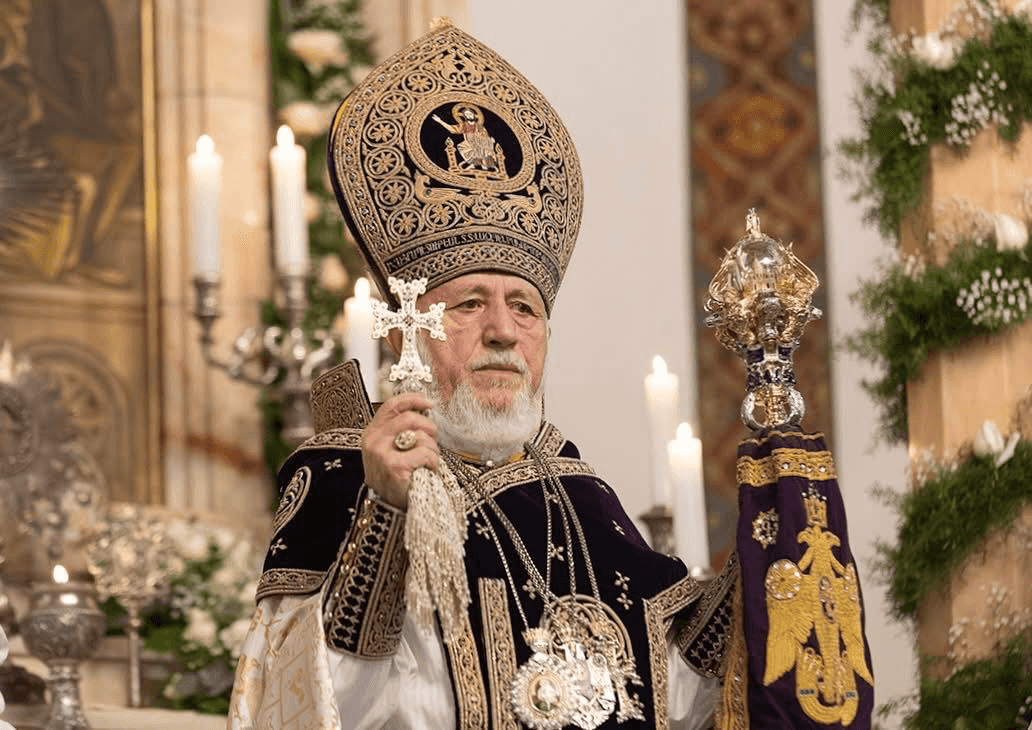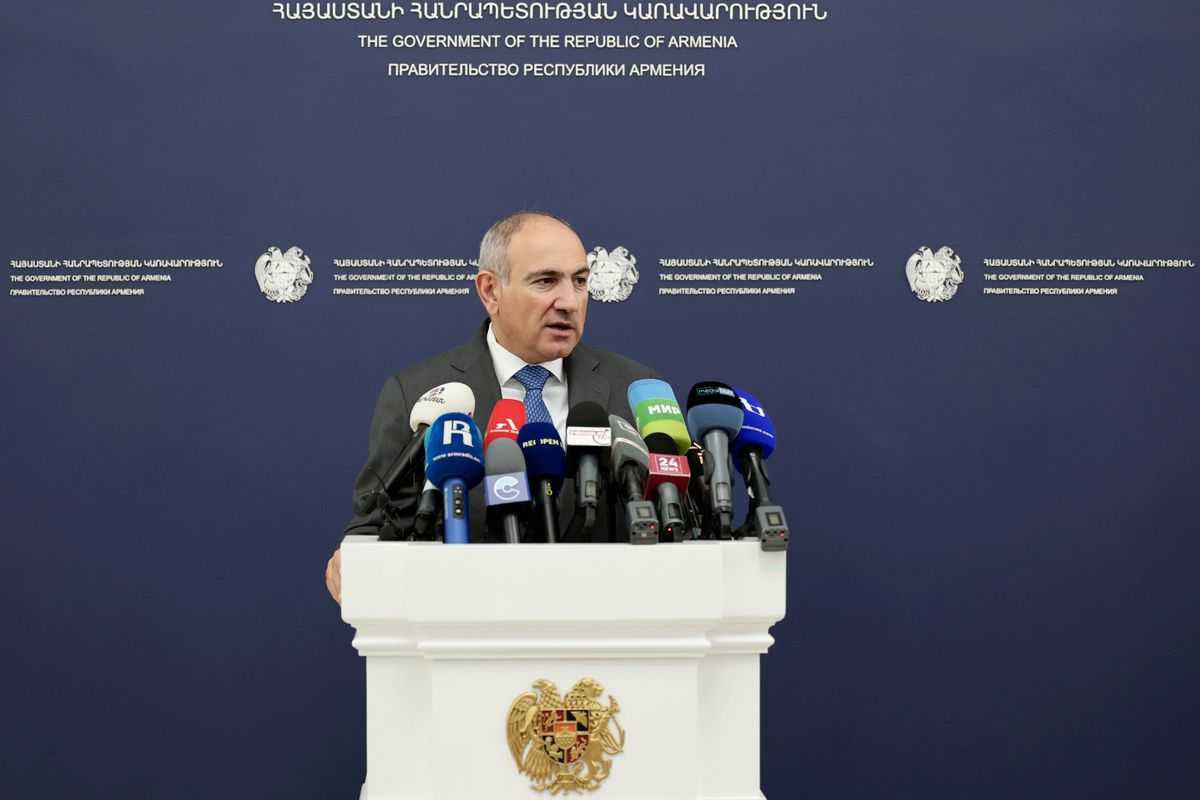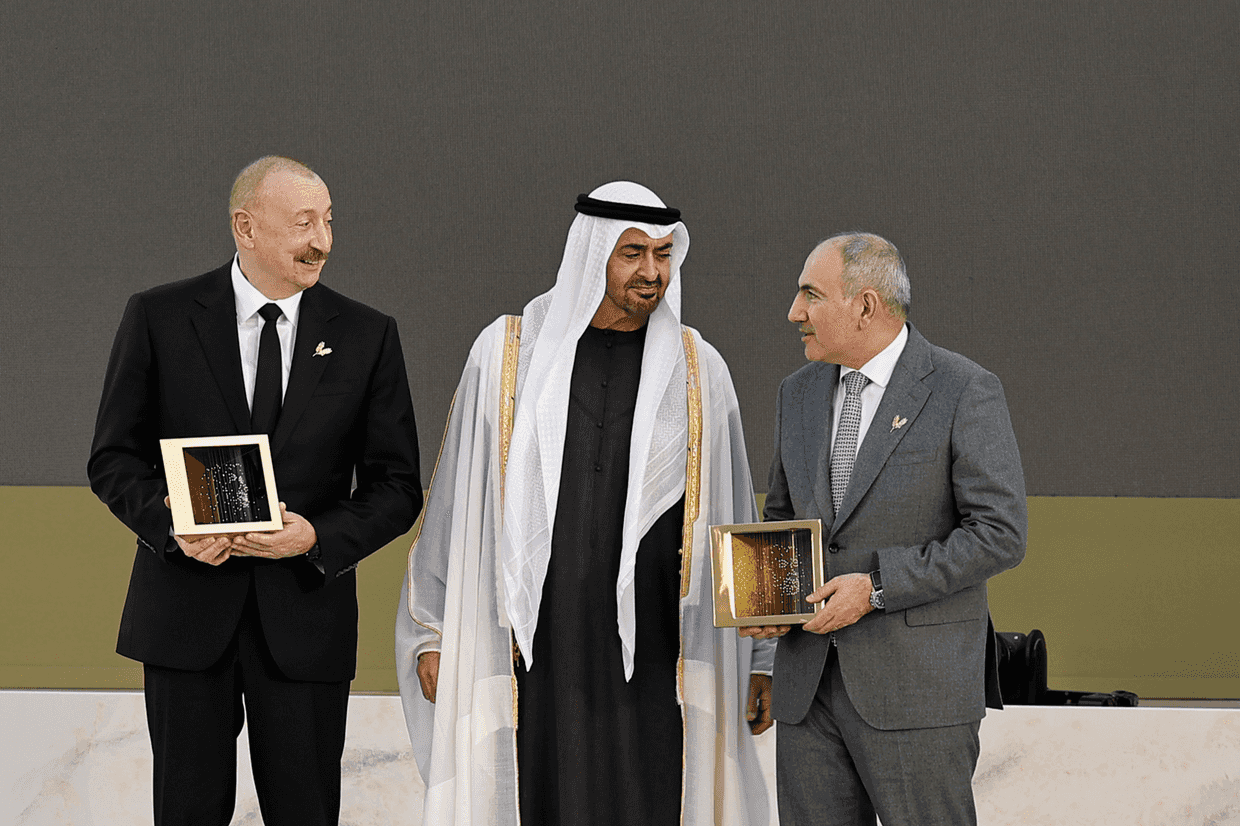Pashinyan again criticises Aliyev’s use of ‘Zangezur corridor’ phrasing during UN speech
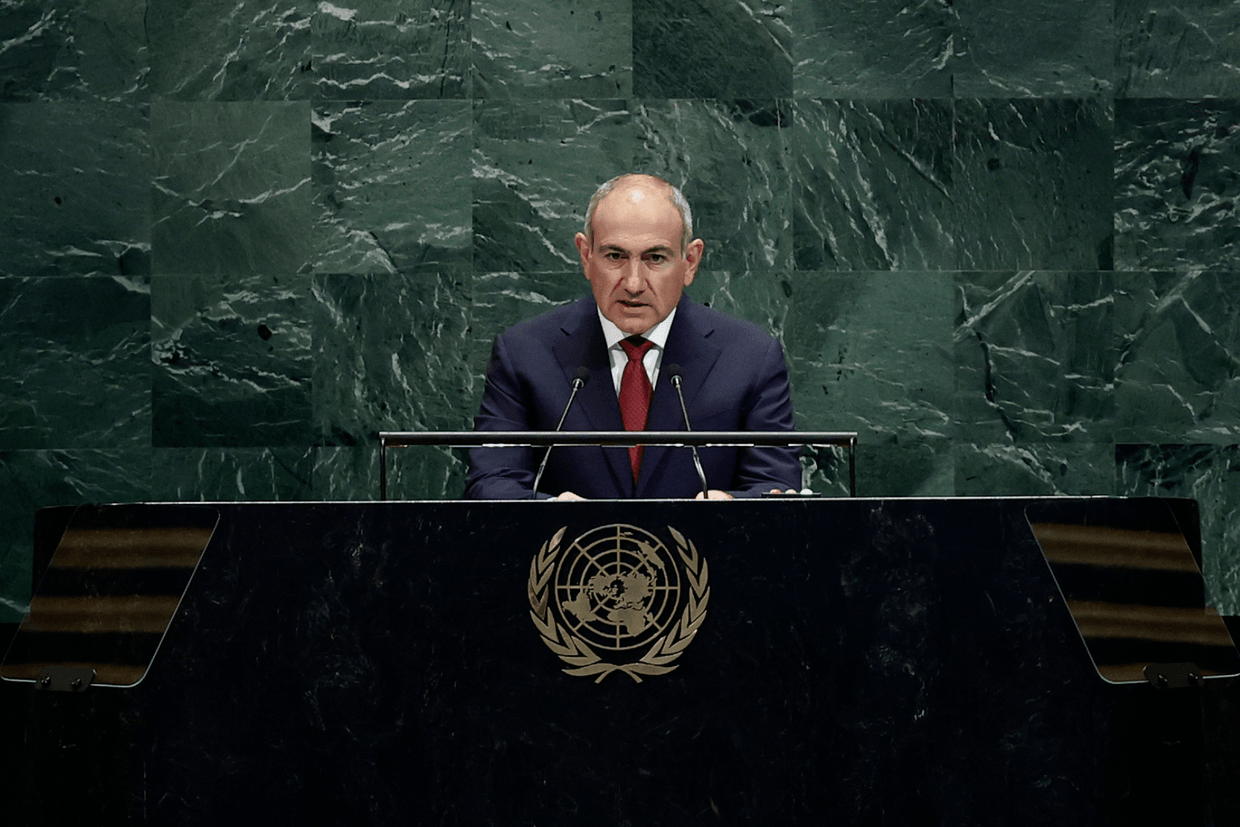
During a speech at the 80th session of the UN General Assembly, Armenian Prime Minister Nikol Pashinyan hit back at Azerbaijani President Ilham Aliyev’s continued use of the term ‘Zangezur corridor’, emphasising that in Armenia, it is perceived as a territorial claim and is associated with ‘conflict narrative’.
‘I think it makes sense for my Azerbaijani counterpart to clarify what he means by using that expression, because in the Armenian reality it is perceived as a territorial claim on Armenia and is associated with conflict narrative’, Pashinyan said during his Saturday speech, adding that ‘such narratives do not increase people's faith in peace; nor do they stem from the atmosphere of peace and the agreements reached at the highest level’.
Pashinyan also addressed Aliyev’s prior comments about the ‘alleged capitulation of Armenia’.
‘To be frank, I do not understand, in the presence of such a huge positive content, achieved through joint heavy efforts, why engage [in] aggressive subtexts that are not connected with objective reality. Doesn’t peace bring enough joy and satisfaction? To me, for example, it does’, Pashinyan said, adding that Armenia is ‘a democratic state that is developing at an impressive pace, independent, sovereign, and building its own future today, a state that does not harbor or spread hatred towards its neighbors or towards anyone’.
‘I invite the attention of the international community to the fact that the so-called “Zangezur corridor” and similar narratives do not stem from the agreements reached, have no connection with the agreements, have an irritating and negative impact, and are perceived as a territorial claim against a sovereign country, despite the agreements reached and declared’, Pashinyan emphasised.
‘But this will certainly not divert us one millimeter from the practice of celebrating the peace achieved and implementing the agreements declared’, he concluded, regarding Aliyev’s comments.
Armenia–Azerbaijan peace process
Pashinyan spent the majority of his Saturday address speaking about the Armenia–Azerbaijan peace process, noting the progress that had been made since his last UN speech in 2024.
Among the highlights listed, he named in particular the ratification of the joint activities of the demarcation commissions, which was the first bilateral international document signed and ratified between Armenia and Azerbaijan; the draft peace agreement agreed upon in March and initialled in August in Washington; and the Washington Declaration witnessed by US President Trump, which introduced the Trump Route for International Peace and Prosperity (TRIPP).
‘What does all this mean? All this means, and I am happy to report to the entire international community, that peace has been established between the Republic of Armenia and the Republic of Azerbaijan’, Pashinyan said.
He then went on to emphasise Trump’s role in the peace negotiations.
‘This is why we agreed with Azerbaijan’s President Ilham Aliyev on our joint decision to nominate President Trump for the Nobel Peace Prize, because we have seen through our own example that President Trump is truly committed to the idea of peace’, Pashinyan added.
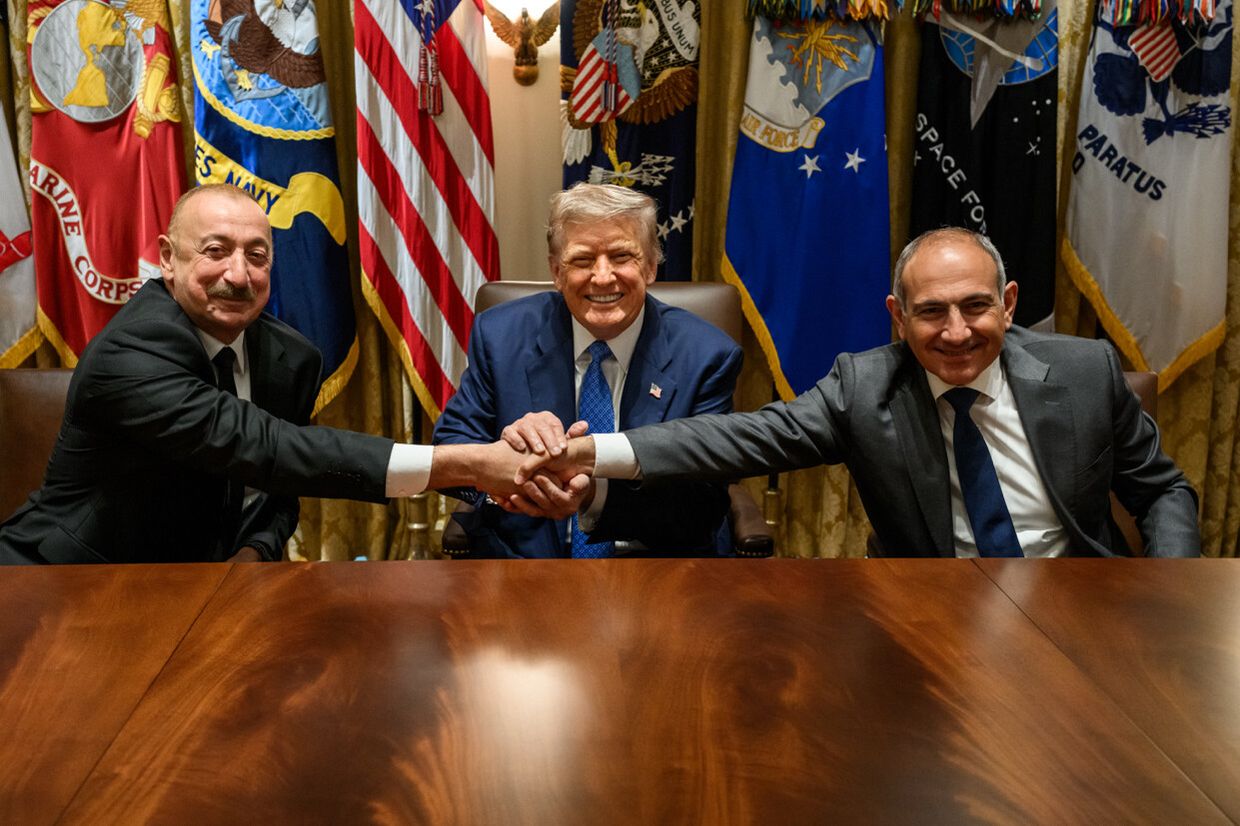
While stating that peace had been established, Pashinyan also stressed that work needed to continue in the same vein.
‘Peace requires daily care, like a newborn baby, to be protected from infections, the cold and the heat, the indifference, and the pessimism’, he said.
A balanced foreign policy
Pashinyan also spoke about the increased positive dialogue between Armenia and Turkey, noting that his meetings with Turkish President Recep Tayyip Erdoğan ‘are regular, with a continuously growing level of trust’.
‘This is an achievement that I highly value and am confident will bring positive results in the foreseeable future, namely the establishment of diplomatic relations between Armenia and Turkey and the full opening of the interstate border’, he said.
He then discussed the newly-established diplomatic relations between Armenia and Pakistan, noting that dialogue was ‘taking place’.
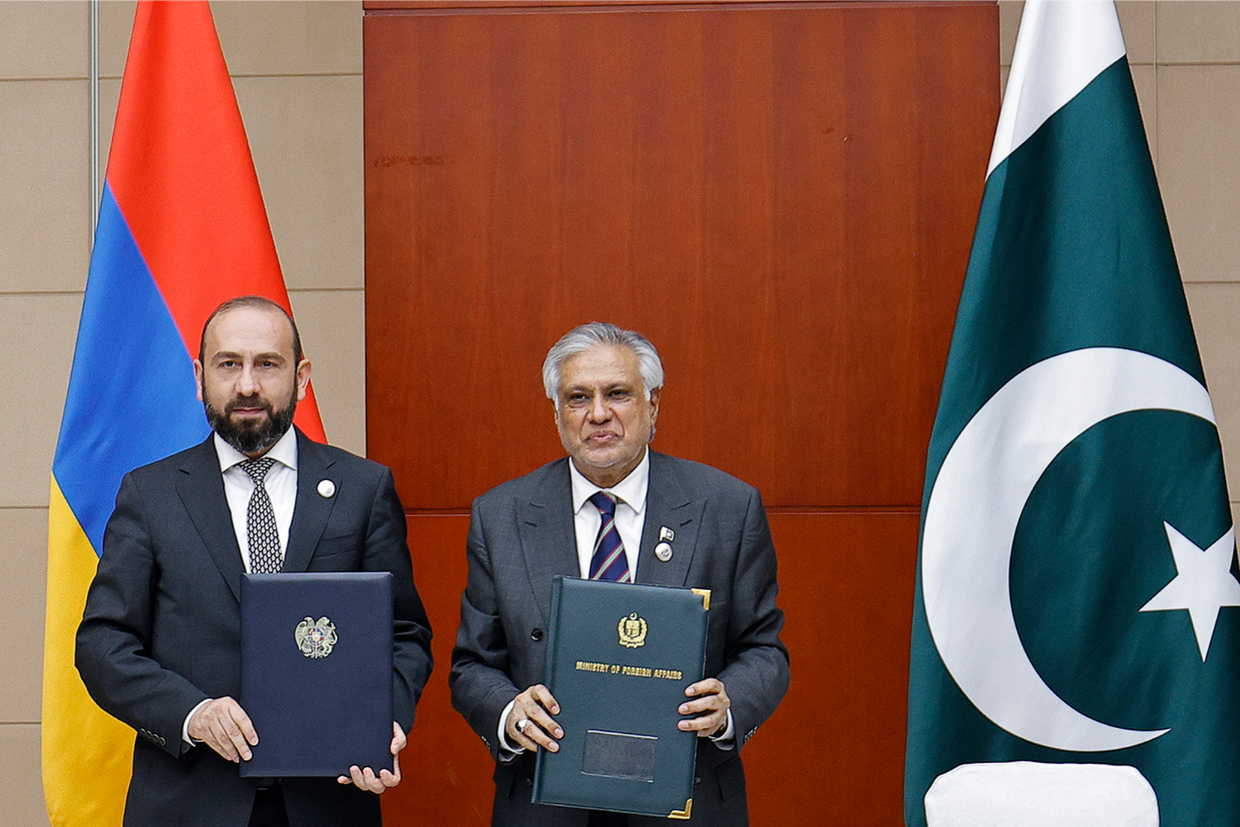
Pashinyan also touched upon relations with Iran and Georgia, claiming Armenia’s dialogue and brotherhood with the two nations was ‘becoming more visible’.
‘These relations, along with our relations with Turkey and Azerbaijan, are extremely important for seeing the South Caucasus region as a peaceful, stable, and developing environment’, Pashinyan said.
‘In this sense, I also value the 3+3 format, which is an important platform for us to engage in dialogue with the countries of our region and to develop our traditional dialogue with the Russian Federation, although we always have active contacts with Russia in a bilateral format’, he added.
The 3+3 format meetings include Turkey, Iran, and Russia on one side, and Armenia, Azerbaijan, and, theoretically, Georgia on the other. However, Georgia has declined to join the format, citing Russia’s participation. This format was put forward by the presidents of Azerbaijan and Turkey at the end of 2020 following the Second Nagorno-Karabakh War.
Finally, Pashinyan noted the recent strategic partnership established with China, as well as Armenia’s intentions to intensify relations with India, Japan, Mongolia, the Middle East, and Central Asian countries.
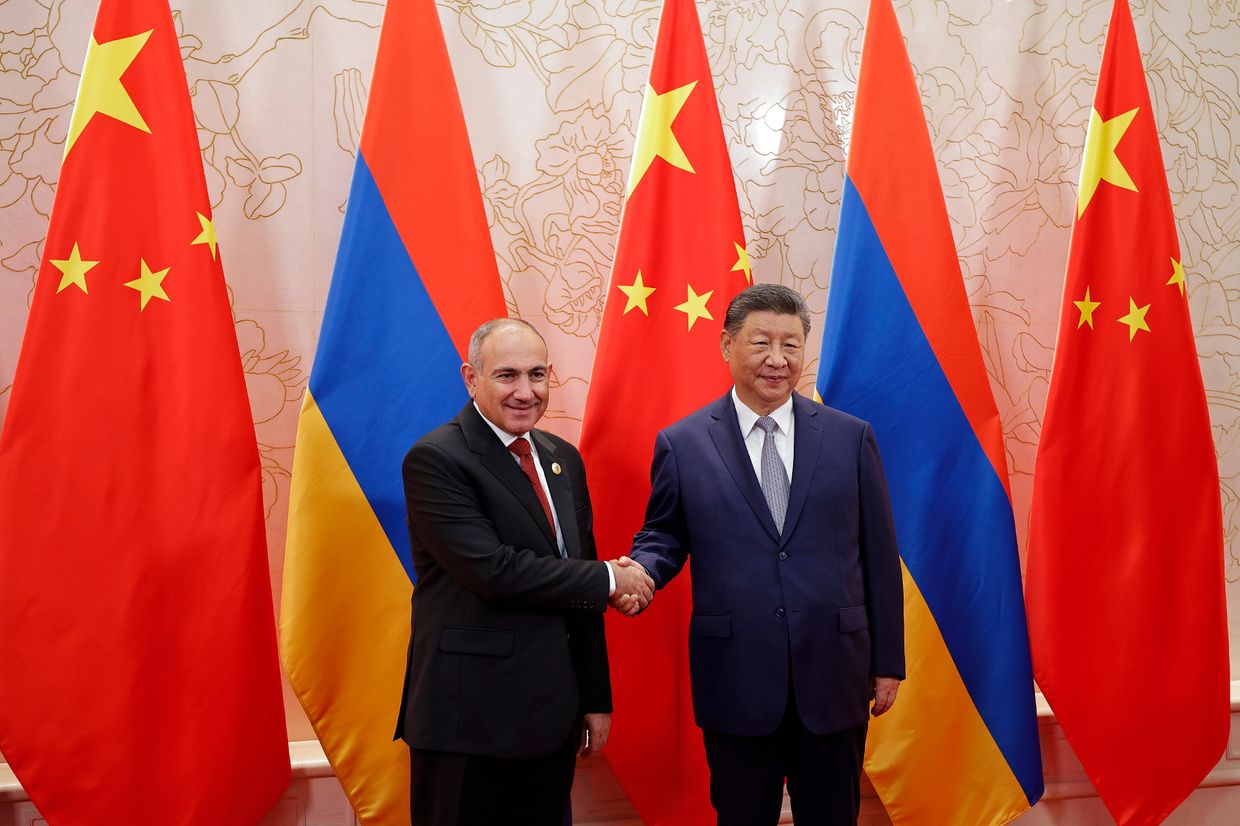
‘A balanced and balancing foreign policy opens up new horizons for us’, Pashinyan emphasised.
In this same vein, Pashinyan also spoke on Armenia’s commitment to joining the EU, calling the law on starting the accession process ‘an incentive for us to consistently continue the democratic reforms’.
‘If they accept us, fine. If they do not, we will have accomplished a very important task set before us: Armenia will be a country that complies with the advanced modern standards’, Pashinyan said.
‘Our aspiration to comply with European Union standards is a matter of not geopolitical, but rather democratic choice’, he continued.
Pashinyan also re-stated his government’s plans to initiate a nationwide referendum to adopt a new constitution if his party won the upcoming 2026 parliamentary elections.
He concluded his speech by noting the upcoming international events being hosted by Armenia in the coming year, including the 8th Summit of the European Political Community and the 17th Conference of the Parties to the UN Convention on Biological Diversity.
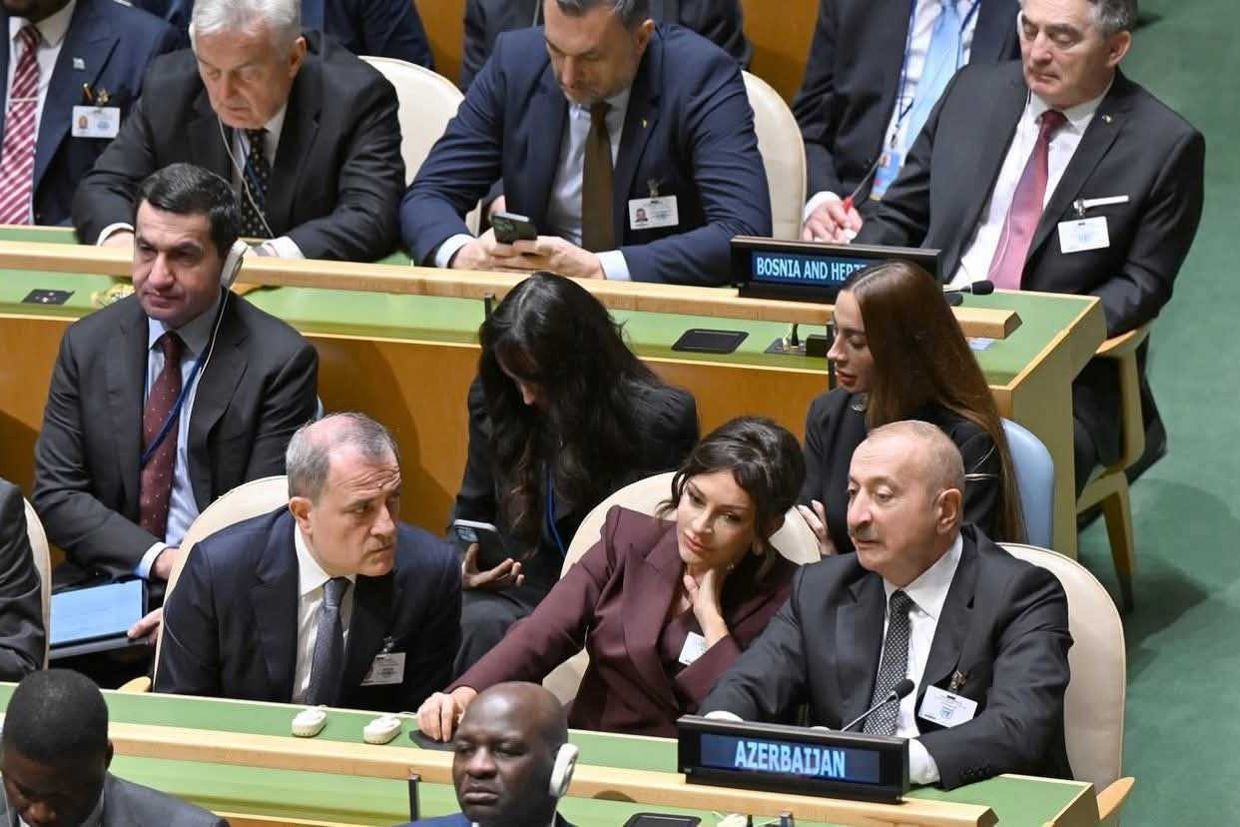
This article was translated into Russian and republished by our partner SOVA.





